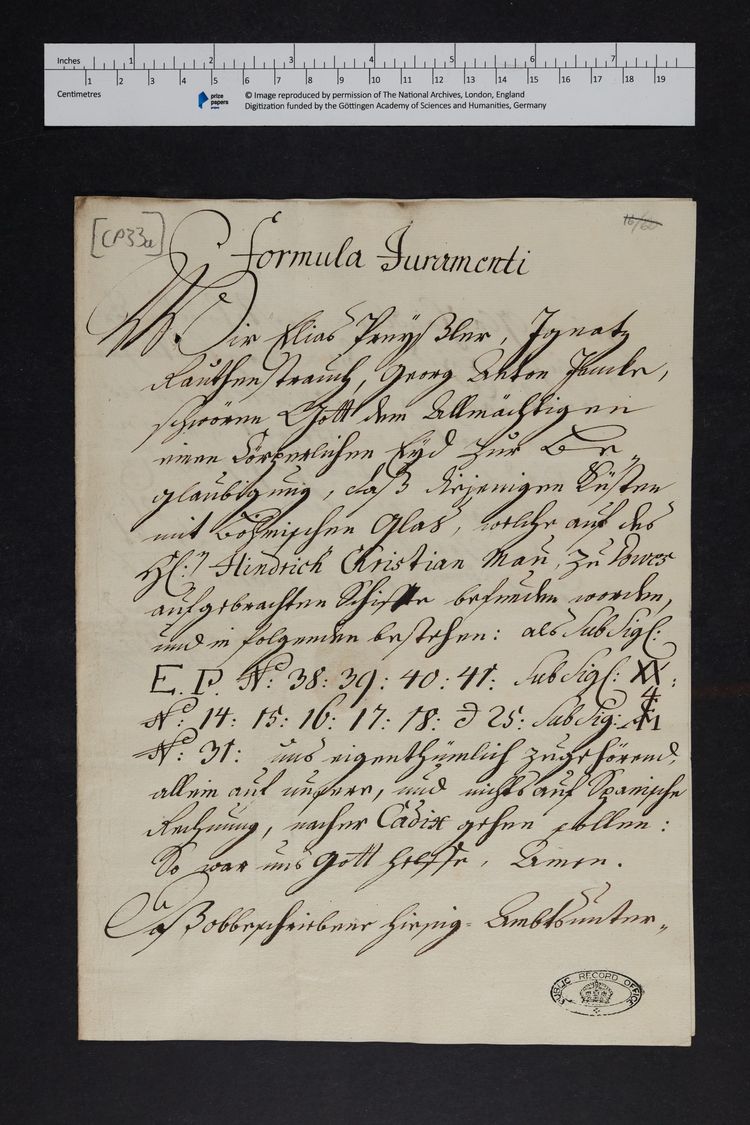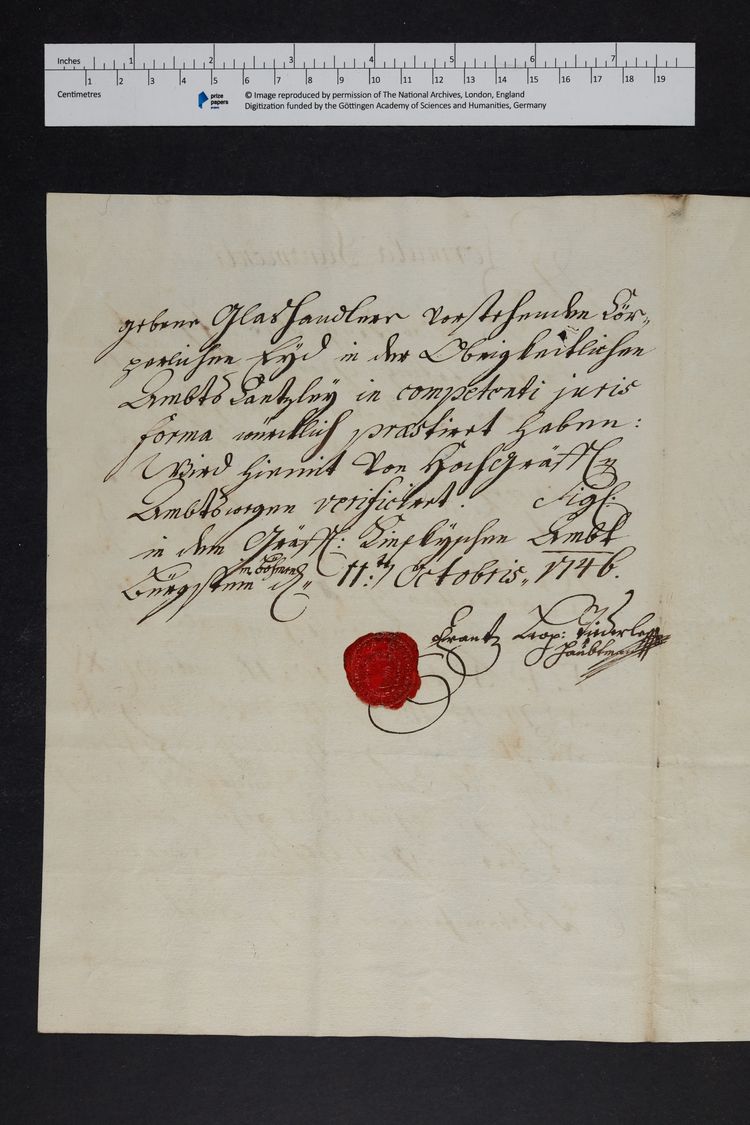Juffrouw Anna Elizabeth
Juffrouw Anna Elizabeth
The Hamburg ship Juffrouw Anna Elisabeth was on its way to Cadiz, Malaga and Marseilles in September 1746 when it was captured by the British privateer Carlisle, commanded by William Owen. Captain Christian Mau had loaded the ship in Hamburg and Altona with a variety of goods, including pipe staves, glass, bottles, linen and tin.
On inspecting the ship’s cargo, the British privateers became suspicious of its purported neutrality, for there were several hundred packages of goods on bord originating from various neutral, friendly and hostile territories across Europe. The High Court of Admiralty agreed with this suspicion and commenced an extensive investigation into the origins of these goods. It requested more than ninety certificates from various territories in order to verify the origin of individual goods. In the end the court found enough goods on board attributable to enemy territories. It confiscated the goods, but removed the ship itself from the prize for it was deemed neutral.
The diverse origins of the goods on the Juffrwouw Anna Elisabeth is fascinating. Many came from regions far away from the port cities, for example, from Switzerland. The ship was connected to a trading region stretching across Bohemia, Silesia and Upper Lusatia, known, for example, for trade in glass.
The Anna Elisabeth provides material especially for those interested in early modern merchant networks. One example is the trader networks for Bohemian glass via Hamburg to Spain. The court case also provides material for the question of what neutrality actually meant in the early modern period. In this case, the ship was neutral, but not the cargo. Determining the neutrality of a ship was a complicated and time-consuming procedure for the court. During the investigation, it was necessary to contact various municipal and state authorities, who prepared attestations about the origin of the goods. In turn these had to be translated from the various languages into English. The records of the Juffrouw Anna Elisabeth are also a promising source for research into European civil jurisdiction in the early modern period.
Discover HCA 32/122/16: Juffrouw Anna Elisabeth in TNA Discovery
Browse the documents in the Prize Papers Portal
Selected example: HCA 32/122/16/CP33a (in German)
Download the transcription as PDF file

by Dr Jessica Cronshagen
Schools and Museums Liaison
Contact: j.cronshagen@uni-oldenburg.de

Alicia Anderson
Research assistant
Credit: Juffrouw Anna Elizabeth, TNA, HCA 32/122/16, Photo: Maria Cardamone, Mustapha Ousellam, Prize Papers Project. © Images reproduced by permission of The National Archives, London, England.



